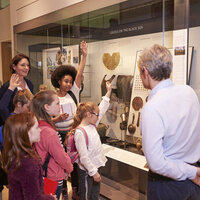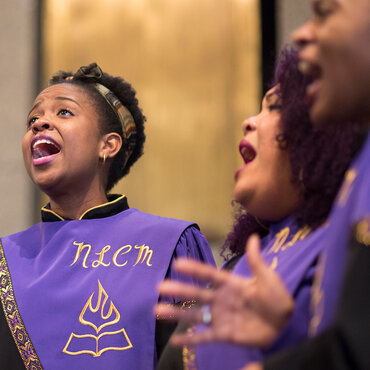
Interdisciplinary Approaches to Teaching and Learning about Religion
Religious Studies, or the academic study of religion, draws its methods from a variety of disciplines including psychology, sociology, history, and anthropology, just to name a few. This module examines a selection of these approaches and how they’ve been applied to the study of religion.
Get even more great free content!
This content contains copyrighted material that requires a free NewseumED account.
Registration is fast, easy, and comes with 100% free access to our vast collection of videos, artifacts, interactive content, and more.
NewseumED is provided as a free educational resource and contains copyrighted material. Registration is required for full access. Signing up is simple and free.
With a free NewseumED account, you can:
- Watch timely and informative videos
- Access expertly crafted lesson plans
- Download an array of classroom resources
- and much more!
- Religious Literacy
- Educator
Benjamin P. Marcus is a fellow and former Religious Literacy Specialist with the Religious Freedom Center of the Freedom Forum Institute, where he examines the intersection of education, religious literacy and identity formation in the United States. He has developed religious literacy programs for public schools, universities, U.S. government organizations, and private foundations in the U.S. and abroad.
Andrew Henry is scholar of religious studies. His research focuses on the religions of the late ancient Mediterranean world, particularly on the material culture of early Christianity. Andrew also has interests in the intersection of social media technology and religious studies pedagogy and is the founder of the educational YouTube channel Religion for Breakfast.
- Identify how other disciplines, including psychology, sociology, history, and anthropology, have influenced numerous scholars’ approach to understanding/explaining religion.
- “Introduction” in Ninian Smart, Dimensions of the Sacred: An Anatomy of the World’s Beliefs (Berkeley: University of California Press, 1999), 1-25.
- “Religious Studies Companion Document for the C3 Framework,” approved by the American Academy of Religion for the National Council for the Social Studies, p. 92 – 97.
- “Approaches to the Academic Study of Religion” by Andrew Henry, Religion for Breakfast
- How do the approaches to the study of religion from different academic disciplines complement each other?
- Which of the disciplines discussed could you use to integrate the study of religion into your curriculum? How might you incorporate multiple methods of studying religion in your lessons?























